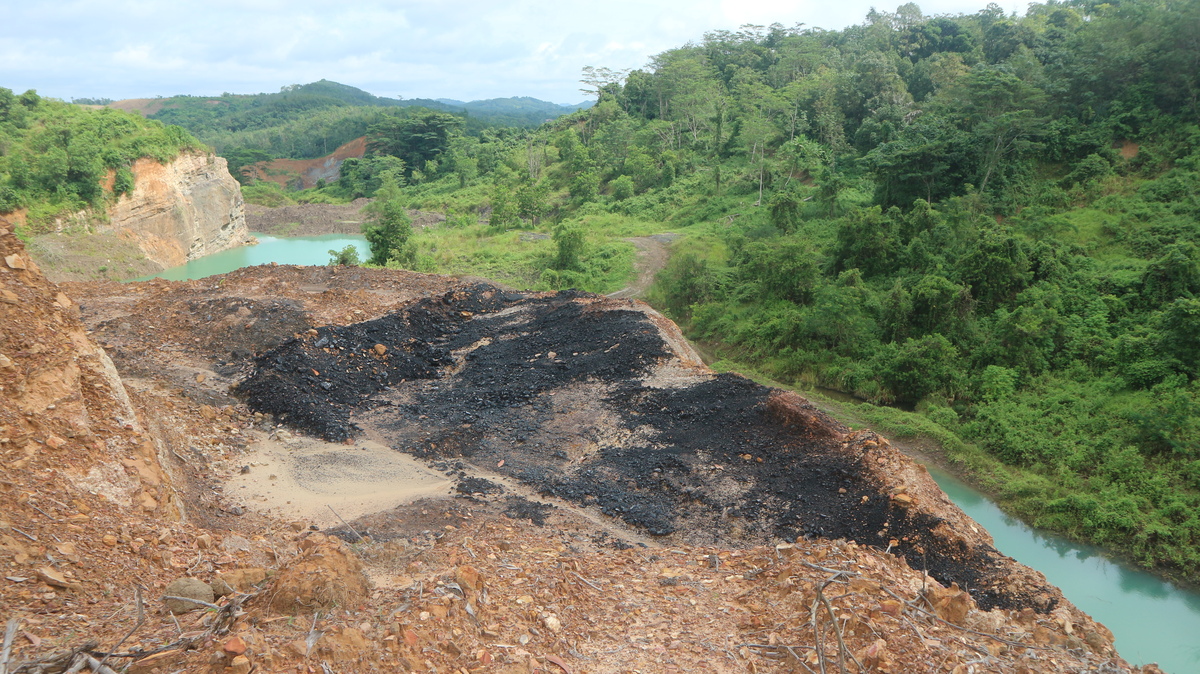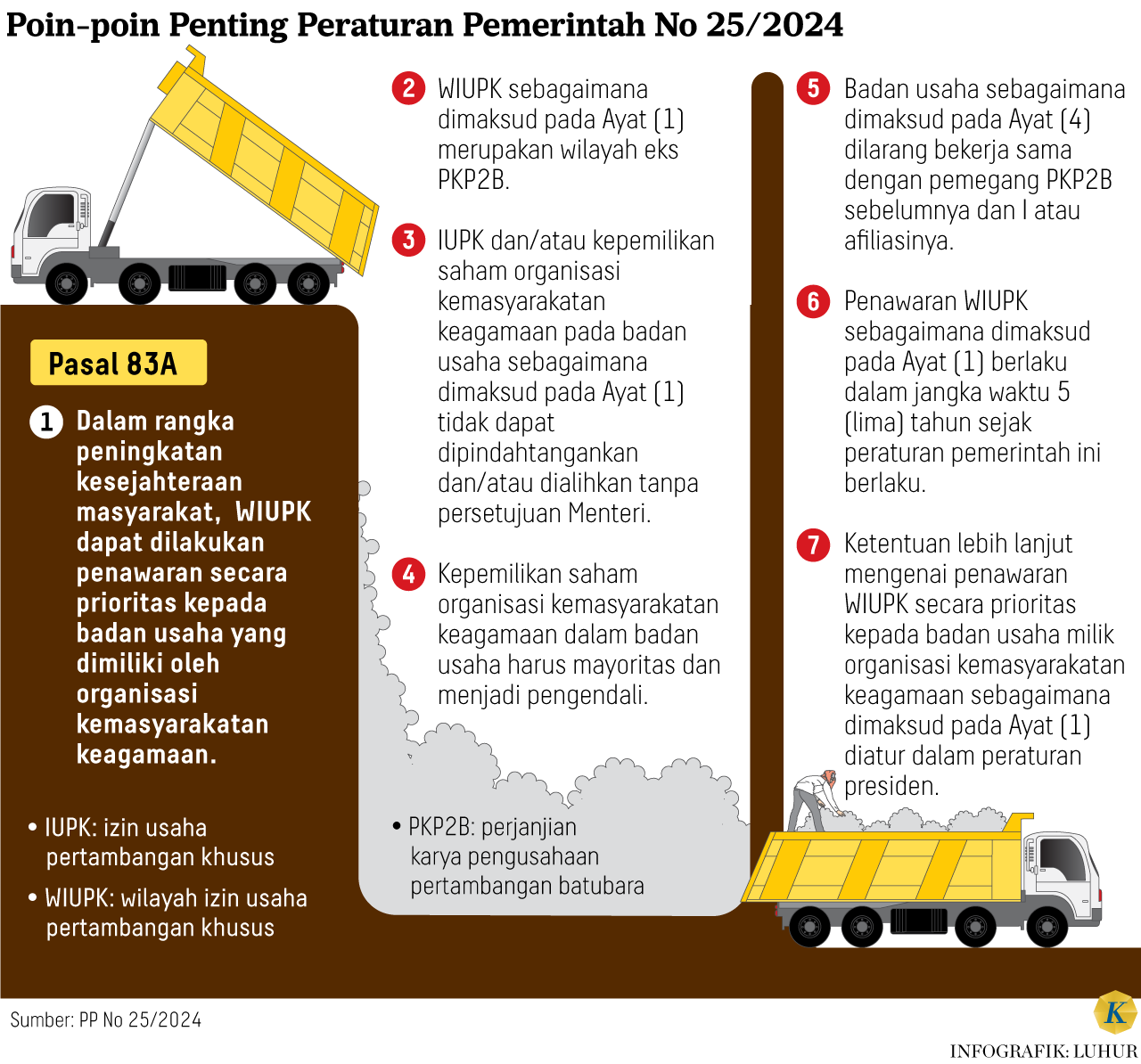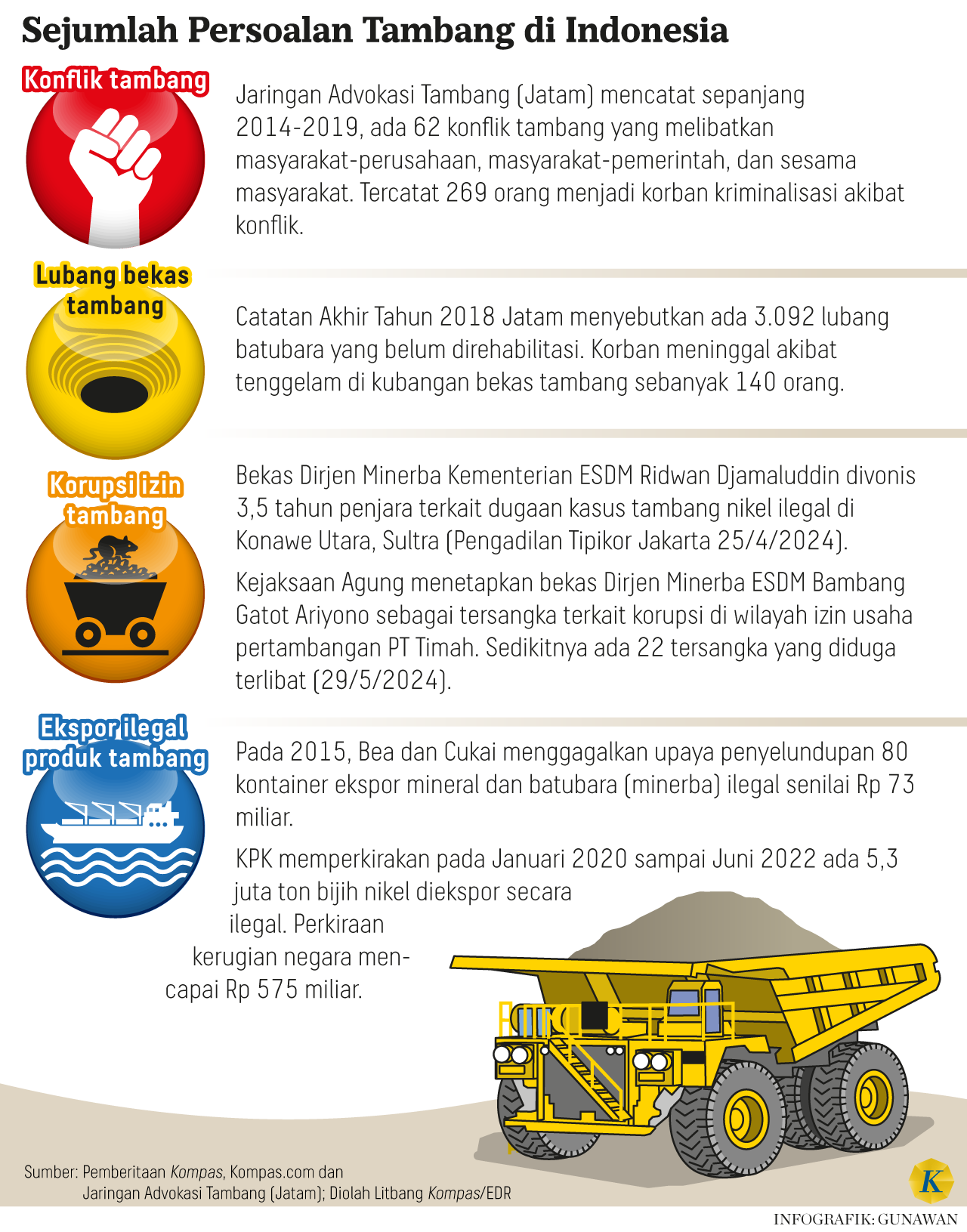JAKARTA, KOMPAS — Instead of managing coal mines which have many problems, the government is advised to give the right to manage community-based renewable energy development to religious organizations. The development of renewable energy is also in line with the government’s goal of a net zero emissions program by 2060 or sooner. The priority of religious organizations in managing coal mining land is still generating polemics in the public.
“If the government really intends good for religious organizations, they should facilitate them in managing community-based renewable energy. Research by Celios and 350.org Indonesia shows that developing community-based renewable energy contributes to the gross domestic product of Rp 10.529 trillion over a period of 25 years,” said Indonesia Team Lead Interim of 350.org Indonesia, Firdaus Cahyadi when contacted on Sunday, (9/6/2024), in Jakarta.
Firdaus reminded that developing coal businesses is not easy in this era of pushing to accelerate energy transition from fossil to renewable energy. This is because there are not many financing institutions willing to fund extractive industry businesses, especially those based on coal commodities. Coal is still accused of being one of the contributors to global emissions.
“Religious organizations should not fall into the government’s trap of managing coal mines. Poor coal mining governance has caused environmental damage, a climate crisis, which ultimately harms many people in Indonesia,” he said.
They added that according to Celios and 350.org Indonesia’s research, increasing the development of renewable energy at the community level can boost investment, especially in the clean energy and micro-scale finance sectors. The opening of job opportunities in new sectors will also support the improvement of living standards and purchasing power of the community, especially in areas that have not yet been electrified, some of which are underdeveloped, leading and remote areas.
“From the research, within 25 years there will be a workforce absorption in the renewable energy sector of 96 million people, ranging from installation, operation, to maintenance of small-scale renewable energy. In addition, there is a potential cumulative state revenue of Rp 199 trillion,” he said.
Leave the polemic behind
Meanwhile, Publish What You Pay (PWYP) Indonesia, a civil society coalition consisting of 29 civil society organizations at the national and regional level, urged President Joko Widodo to withdraw Government Regulation (PP) No. 25 of 2024 concerning Amendments to PP No. 96 of 2021 concerning the Implementation of Mineral and Coal Mining Business Activities. PP No. 25/2024 provides privileges for religious organizations to receive priority offers in managing former coal mining land owned by coal mining business work agreement holders (PKP2B). The regulation is a derivative law of Law No. 3/2020 concerning Amendments to Law No. 4/2009 concerning Mineral and Coal Mining.
It would be best for religious organizations not to accept government traps for managing coal mines.
“Nothing in the articles in Law No. 3/2020 gives a mandate to the government to give priority to the management of special mining business permits (IUPK) to religious mass organizations. “This is a clear form of blatant violation of the law,” said National Coordinator PWYP Indonesia Aryanto Nugroho, Sunday (9/6/2024).

According to Aryanto, the Law on Mineral and Coal Mining gives priority to offering mining business permit areas (WIUP) to state-owned enterprises (BUMN), regional-owned enterprises (BUMD), and only then to private companies. The reason why the first priority is given to BUMN is in accordance with the constitution’s mandate that the management of natural resources should be for the prosperity of the Indonesian people as much as possible.
“This is not about whether religious organizations do not have the capacity and are not allowed to have charitable foundations. In practice, many organizations have charitable foundations and have succeeded well. The issue is the violation of the law and the priority mechanism for offering them. We are actually concerned that religious organizations will be trapped in these problematic rules,” he said.
Previously, on Friday (7/6/2024), Minister of Investment/Head of the Investment Coordinating Board Bahlil Lahadalia stated that the permit for the Nahdlatul Ulama Central Board (PBNU) to manage the former mining land owned by PT Kaltim Prima Coal (KPC) is targeted to be issued this week. “After that, we will offer it to the next (religious organizations). We certainly offer it. If there are (organizations) that refuse, we cannot force them,” he said in a press conference.
So far, out of various religious organizations in Indonesia, the business entity PBNU is the only one that has quickly applied for a mining permit in Kaltim. Other organizations have not yet applied or even refused to do so.
Some who firmly reject it include the Indonesian Catholic Bishops’ Conference (KWI) and the Association of Catholic Students of the Republic of Indonesia (PMKRI).

